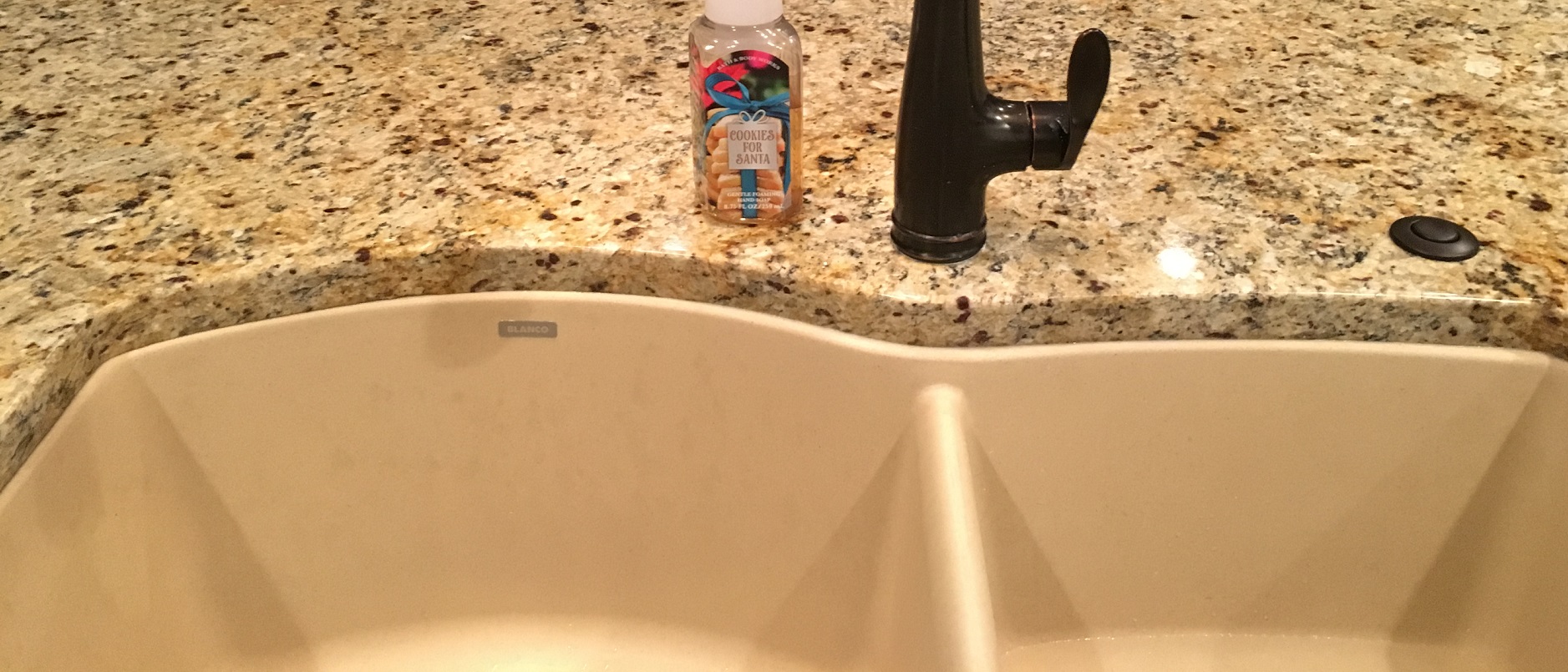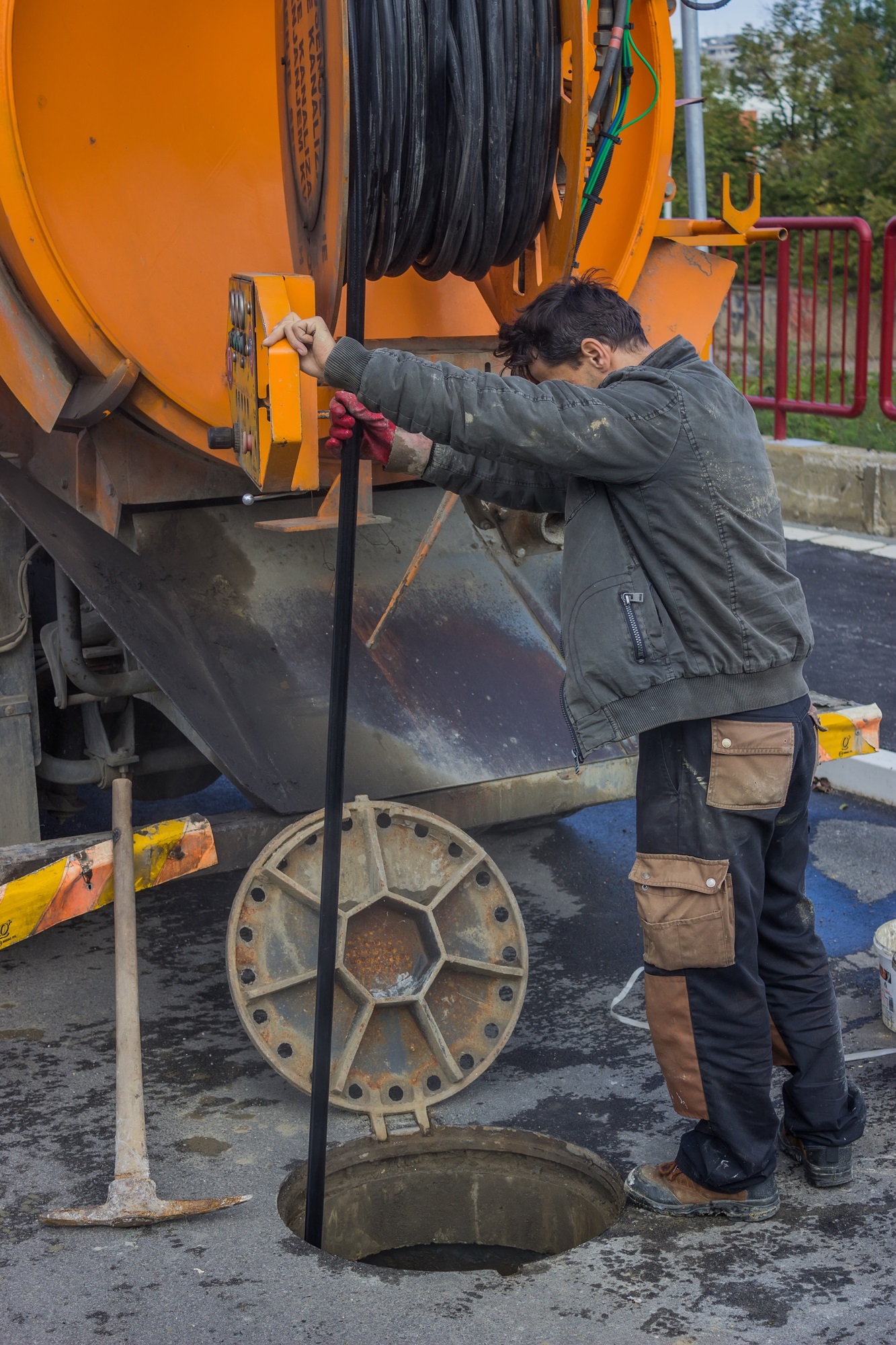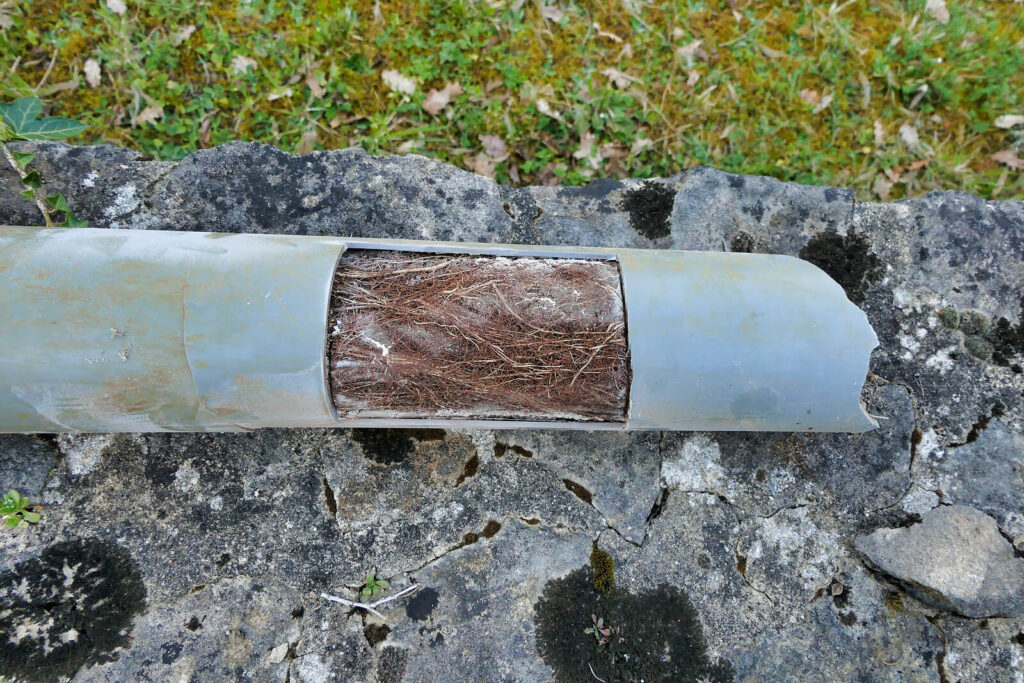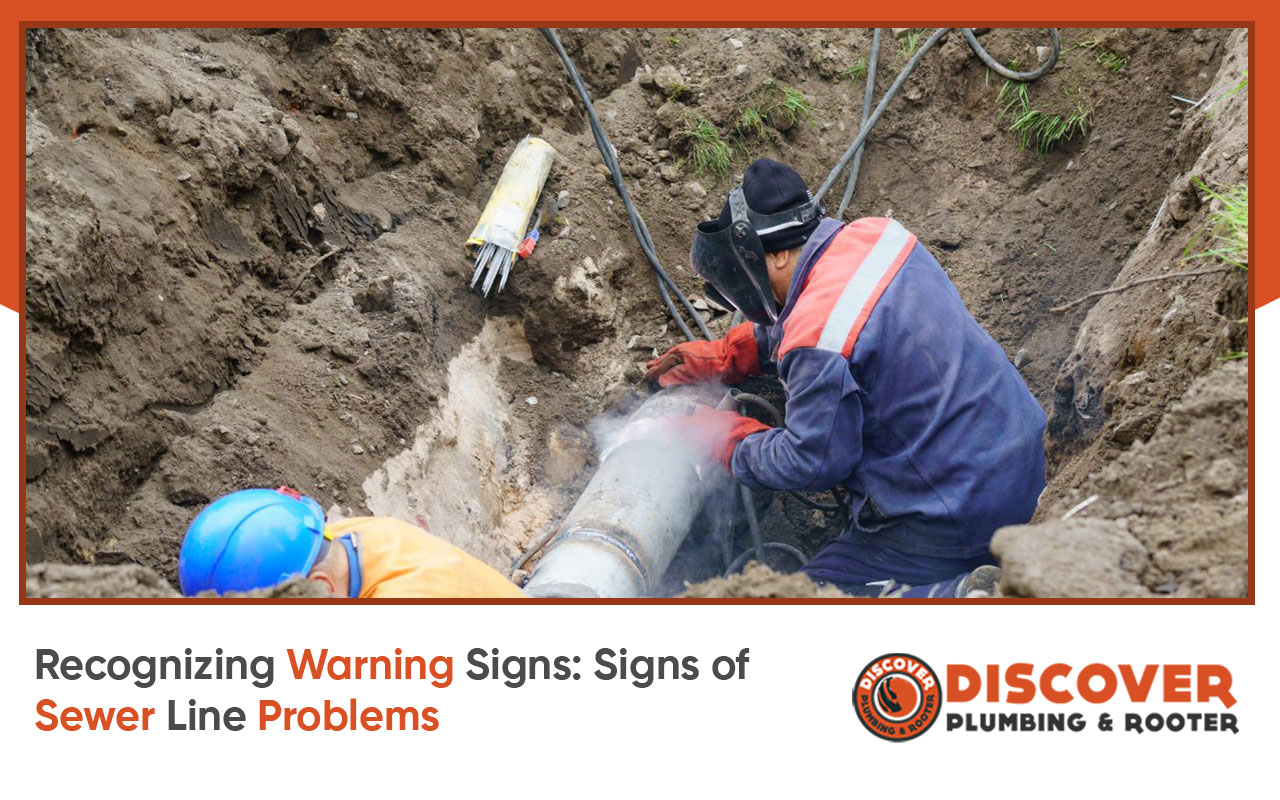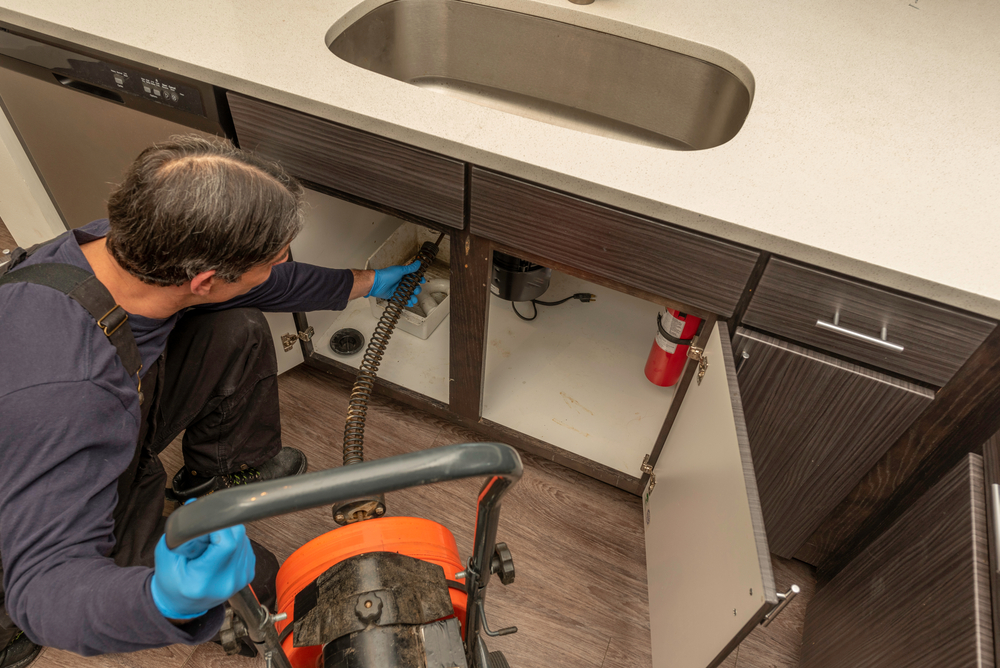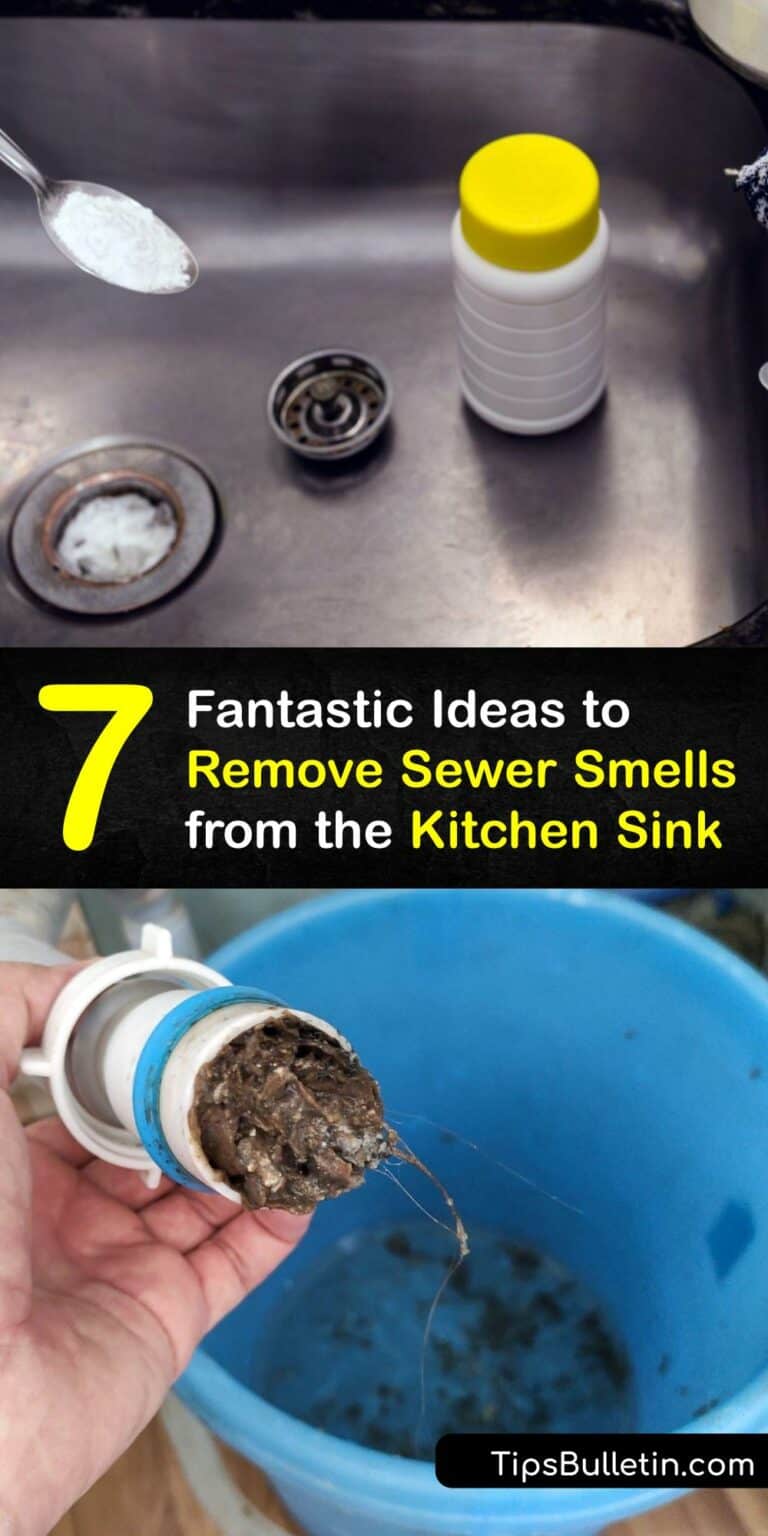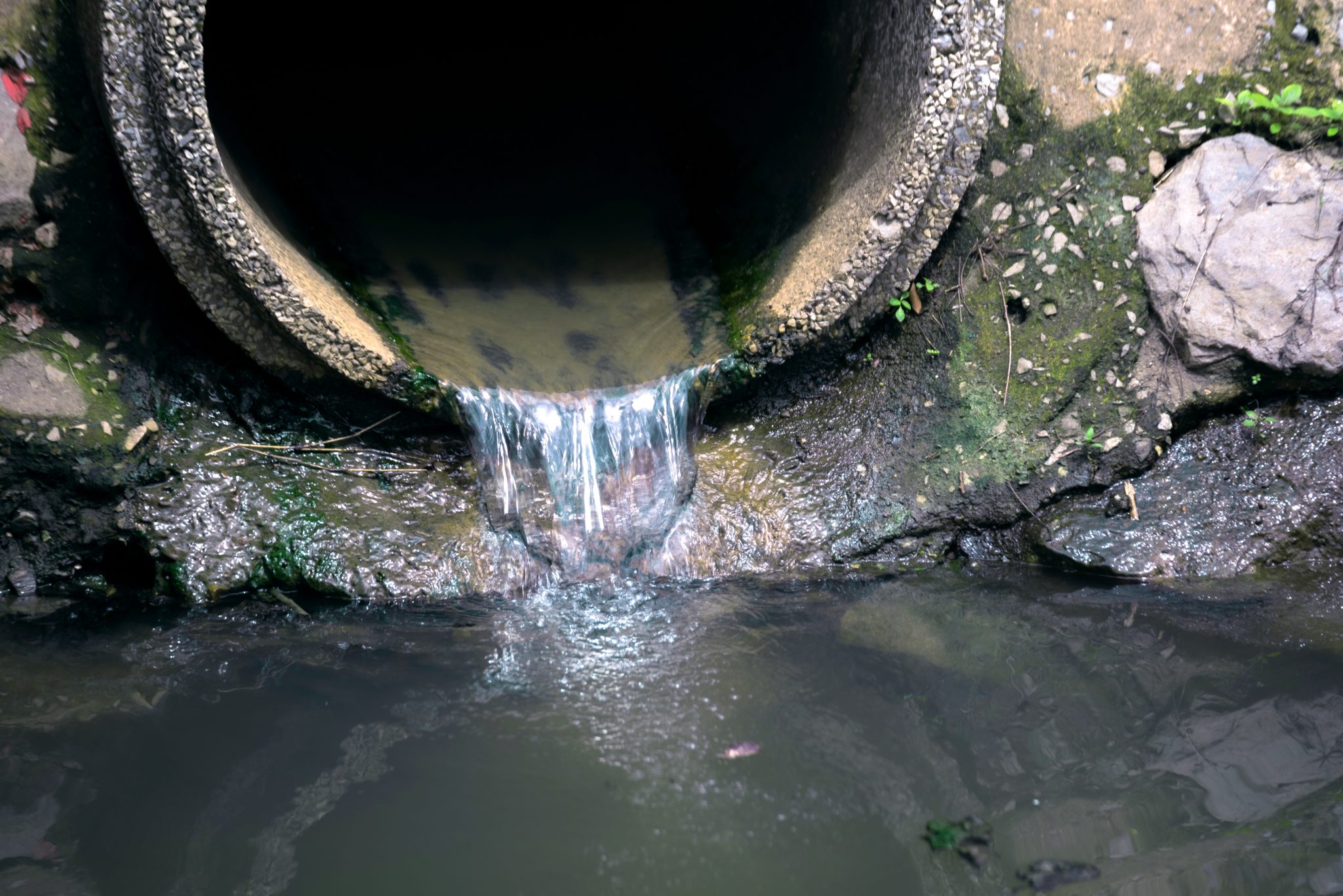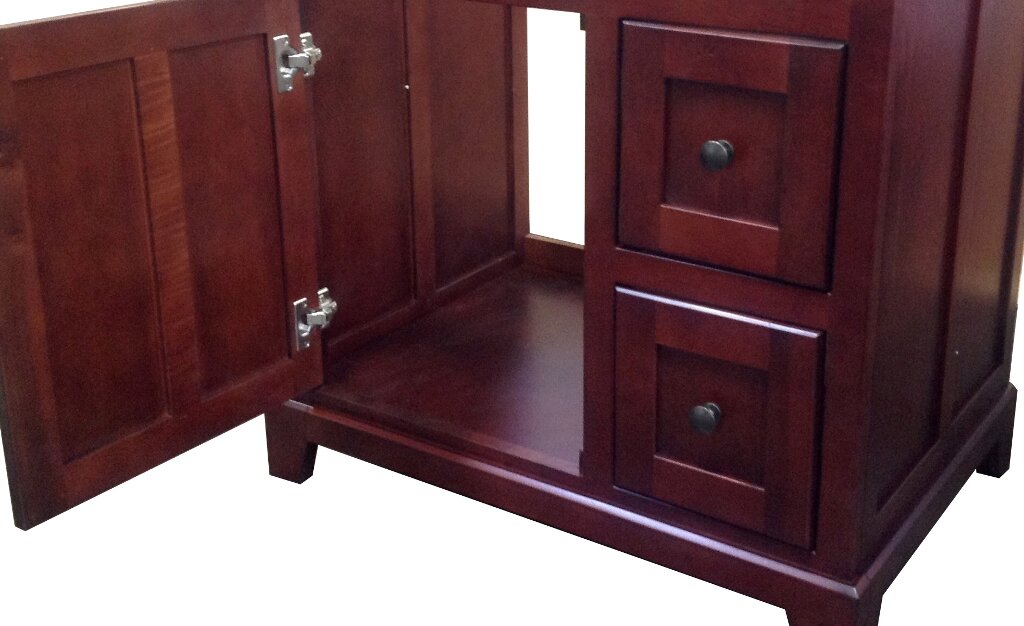If you've ever been hit with the unpleasant smell of sewer gas in your kitchen sink, you know just how off-putting it can be. Not only is it a nuisance, but it can also be a sign of a larger issue. But what exactly causes this foul odor? Let's take a look at some of the common causes of sewer gas smell in kitchen sinks. 1. Blocked or Clogged Drain One of the most common causes of sewer gas smell in kitchen sinks is a blocked or clogged drain. When debris, hair, grease, and other substances build up in your drain, it can create a barrier that prevents proper drainage. This can lead to stagnant water and a buildup of gases, resulting in that unpleasant smell. 2. P-trap Issues The P-trap is a curved pipe under your sink that is designed to hold a small amount of water, which creates a seal to prevent sewer gas from coming back into your home. If this trap is damaged or becomes dry due to infrequent use, it can allow sewer gas to enter your kitchen sink area. 3. Cracked or Damaged Pipes If you notice a sewer gas smell coming from your kitchen sink, it could be a sign of damaged or cracked pipes. Over time, pipes can become corroded or damaged, allowing gases to escape and enter your home. This can also be a sign of a larger issue with your sewer line. 4. Sewer Line Issues If you have a blockage or damage in your main sewer line, it can cause a backup of sewage and gases into your kitchen sink. This is a serious issue that requires immediate attention from a professional plumber.Common Causes of Sewer Gas Smell in Kitchen Sink
Now that you know some of the common causes of sewer gas smell in kitchen sinks, let's discuss how you can get rid of it. The method you use will depend on the cause of the smell. 1. Clean Your Drain If you suspect that a clogged or blocked drain is the cause of the smell, you can try cleaning it out yourself. Use a drain snake or a mixture of baking soda and vinegar to break up any debris and flush it out with hot water. If the smell persists, it may be best to call a professional to thoroughly clean your drain. 2. Refill the P-trap If you suspect that the P-trap is dry, simply run some water through the sink to refill it. This should create a new seal and prevent sewer gas from entering your home. 3. Repair or Replace Damaged Pipes If you have cracked or damaged pipes, it's important to have them repaired or replaced by a professional plumber. This will not only get rid of the smell, but it will also prevent further damage and potential health hazards. 4. Call a Professional for Sewer Line Issues If you suspect that the smell is coming from an issue with your main sewer line, it's important to call a professional plumber right away. They will be able to identify and fix the issue, preventing any further damage or potential health risks.How to Get Rid of Sewer Gas Smell in Kitchen Sink
If you're looking for a more natural and cost-effective solution for getting rid of sewer gas smell in your kitchen sink, there are a few DIY methods you can try. 1. Citrus Peels Place some citrus peels (such as lemon or orange) in your garbage disposal and run it with hot water to help eliminate any odors. The natural oils in the peels will help to neutralize the smell. 2. Baking Soda and Vinegar Mix equal parts baking soda and vinegar and pour it down your drain. Let it sit for a few minutes before flushing it out with hot water. This will help to break down any buildup and eliminate odors. 3. Activated Charcoal Activated charcoal is known for its odor-absorbing properties. Place a few pieces in a bowl under your sink to help eliminate any lingering smells.DIY Solutions for Sewer Gas Smell in Kitchen Sink
In some cases, the best solution for getting rid of sewer gas smell in your kitchen sink is to call a professional plumber. They have the knowledge, experience, and proper equipment to identify and fix the issue. 1. Hydro Jetting Hydro jetting is a method used by plumbers to clean out drains and remove any buildup or blockages. This is a more thorough and long-term solution for getting rid of sewer gas smell in your kitchen sink. 2. Sewer Line Inspection If you suspect that the smell is coming from an issue with your main sewer line, a professional plumber can conduct a sewer line inspection to identify the problem. This will allow them to make the necessary repairs or replacements.Professional Solutions for Sewer Gas Smell in Kitchen Sink
While some causes of sewer gas smell in kitchen sinks are out of our control, there are some preventative measures you can take to avoid this issue. 1. Regular Drain Cleaning To prevent buildup and clogs, it's important to regularly clean your drains. This can be done with a mixture of baking soda and vinegar or with a drain snake. 2. Proper Disposal of Grease and Food Waste Grease and food waste should never be poured down the drain as they can cause buildup and clogs. Instead, dispose of them in the trash or in a designated grease container. 3. Regular Plumbing Maintenance Having your plumbing system regularly inspected and maintained by a professional can help to identify and prevent any potential issues that could lead to sewer gas smell in your kitchen sink.Preventing Sewer Gas Smell in Kitchen Sink
It's important to be aware of any signs that may indicate a larger issue with your main sewer line. These can include: 1. Slow draining sinks or toilets 2. Gurgling noises coming from drains or toilets 3. Sewage backups 4. Foul odors coming from drains or toiletsSigns of a Sewer Line Issue in Kitchen Sink
If you're unsure of the source of the sewer gas smell in your kitchen sink, there are a few steps you can take to identify it. 1. Check all drains and plumbing fixtures Make sure to check all drains and plumbing fixtures in your home to see if the smell is coming from one specific area or if it is present throughout the house. 2. Inspect the P-trap Check the P-trap under your sink to see if it is dry or damaged. This can be a common source of sewer gas smell in kitchen sinks. 3. Look for signs of damage or clogs If you suspect a clog or damage in your pipes, visually inspect them for any signs of issues such as cracks, leaks, or buildup.How to Identify the Source of Sewer Gas Smell in Kitchen Sink
There are some common mistakes that homeowners make that can lead to sewer gas smell in kitchen sinks. These include: 1. Pouring grease or food waste down the drain 2. Infrequent use of drains or plumbing fixtures 3. Ignoring warning signs of plumbing issues 4. Attempting DIY repairs without proper knowledge or equipmentCommon Mistakes That Can Cause Sewer Gas Smell in Kitchen Sink
Exposure to sewer gas can be harmful to your health and can lead to symptoms such as headaches, dizziness, nausea, and respiratory issues. It's important to address the issue promptly to prevent any potential health risks.Health Risks Associated with Sewer Gas Smell in Kitchen Sink
If you've tried DIY solutions and the sewer gas smell persists or if you suspect a larger issue with your main sewer line, it's important to call a professional plumber. They have the expertise and proper equipment to identify and fix the issue, keeping your home and family safe. In conclusion, sewer gas smell in kitchen sinks can be caused by a variety of issues, but with proper maintenance and prompt attention to any warning signs, it can be easily resolved. Remember to regularly clean your drains, dispose of grease and food waste properly, and call a professional if you suspect a larger issue. Don't let the unpleasant smell of sewer gas ruin your kitchen experience. Take action and enjoy a fresh and clean kitchen sink once again.When to Call a Professional for Sewer Gas Smell in Kitchen Sink
The Importance of Proper Ventilation in House Design
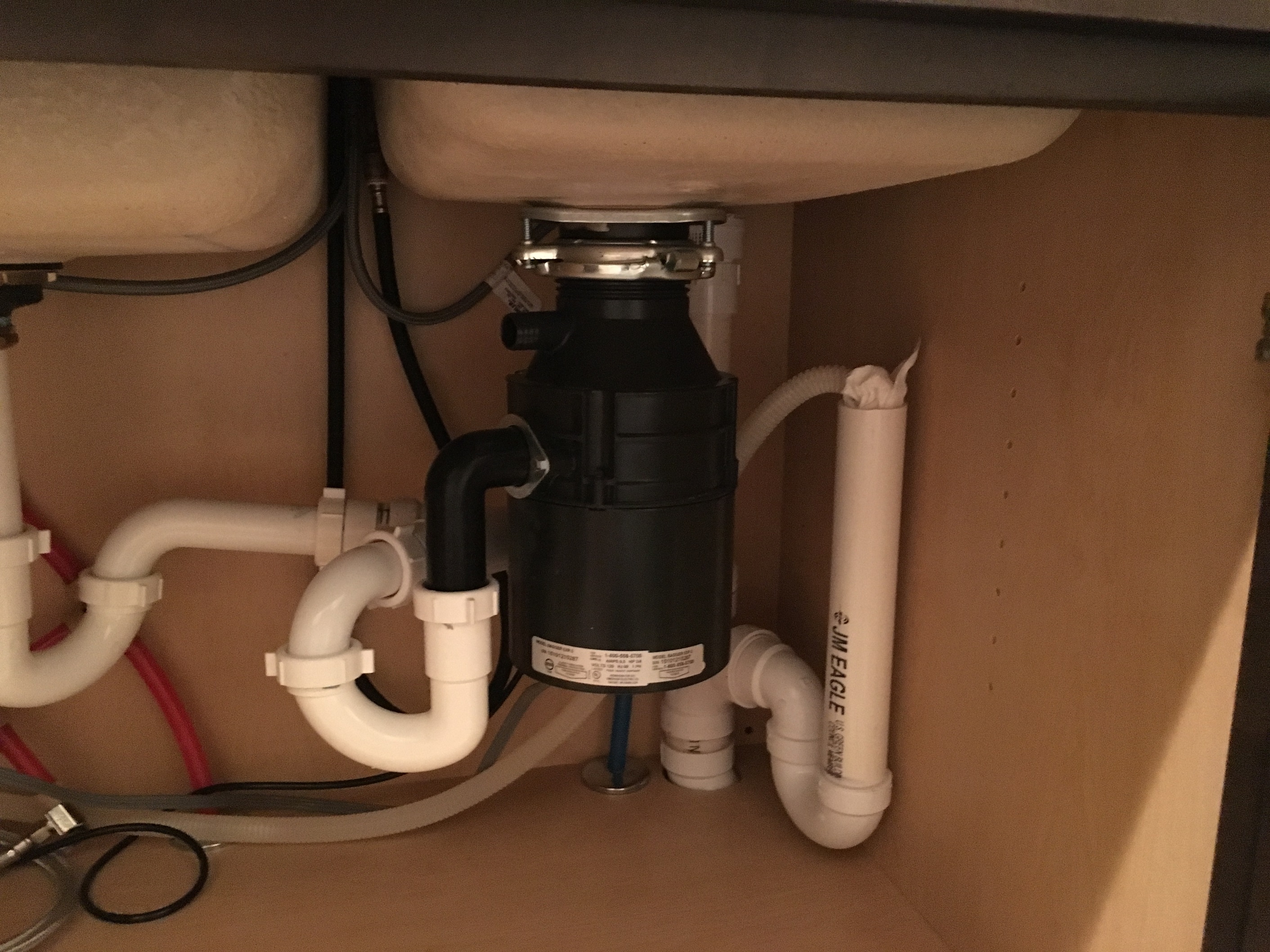
Why Does My Kitchen Sink Smell Like Sewer Gas?
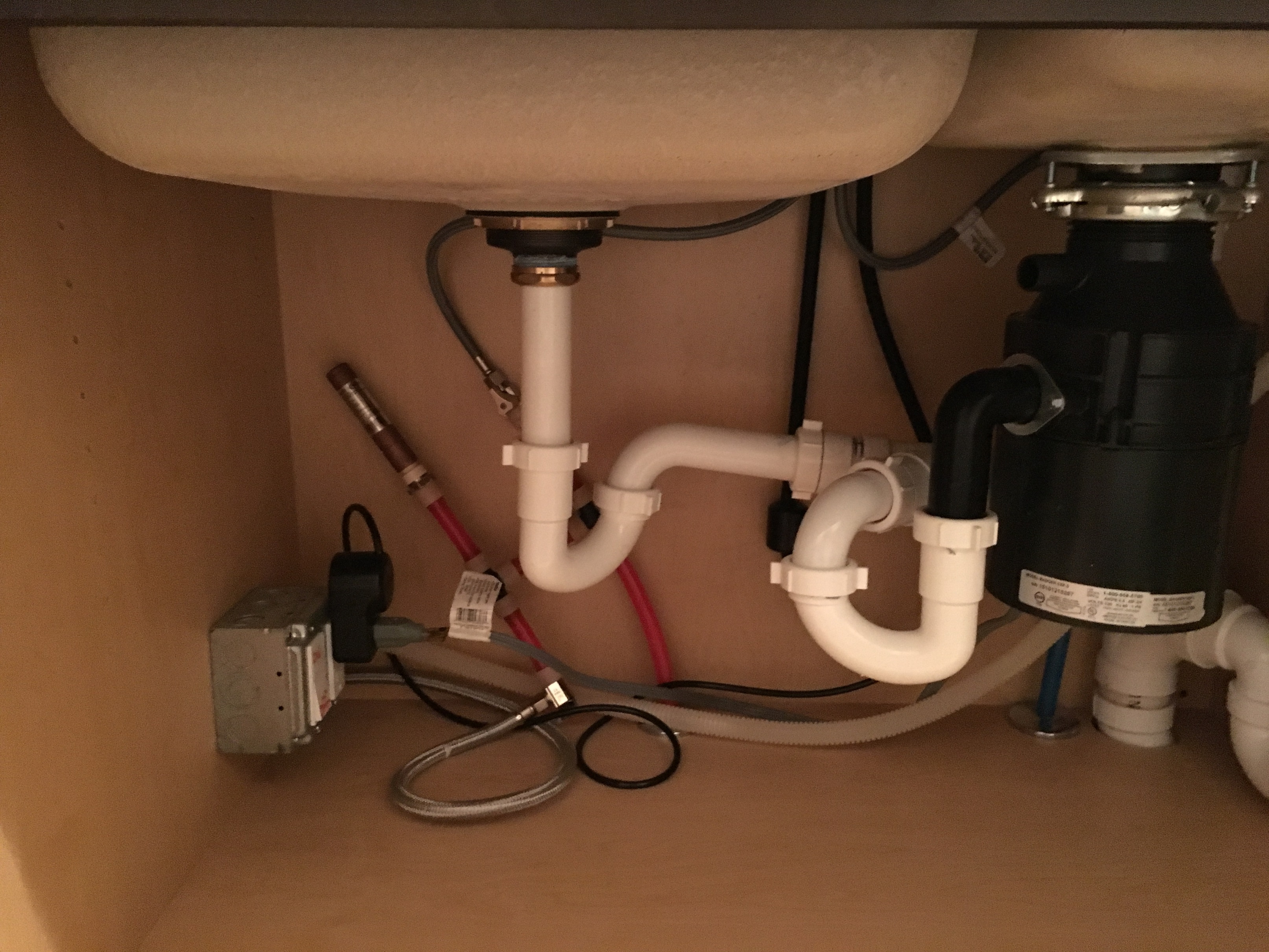 One of the most common complaints in a household is the smell of sewer gas coming from the kitchen sink. This unpleasant odor can be a major nuisance and can also be a sign of a bigger problem in your house design. Before we delve into the solution, let's first understand the root cause of this issue.
Sewer gas
is a mixture of gases that is produced by the breakdown of waste materials in a sewer system. It consists mainly of methane, carbon dioxide, and hydrogen sulfide, which is responsible for the distinct rotten egg smell. When your kitchen sink smells like sewer gas, it means that the gases are escaping from the pipes and entering your home.
One of the most common complaints in a household is the smell of sewer gas coming from the kitchen sink. This unpleasant odor can be a major nuisance and can also be a sign of a bigger problem in your house design. Before we delve into the solution, let's first understand the root cause of this issue.
Sewer gas
is a mixture of gases that is produced by the breakdown of waste materials in a sewer system. It consists mainly of methane, carbon dioxide, and hydrogen sulfide, which is responsible for the distinct rotten egg smell. When your kitchen sink smells like sewer gas, it means that the gases are escaping from the pipes and entering your home.
The Role of Ventilation in House Design
 Proper ventilation plays a crucial role in any house design, and it is especially important when it comes to the kitchen. As we cook, clean, and use the sink, we produce moisture, grease, and other particles that can get trapped in the air. Without proper ventilation, these substances can build up and create an ideal environment for bacteria to thrive, leading to foul odors and potential health hazards.
Kitchen ventilation
is designed to remove these pollutants and improve the air quality in your home. It works by extracting the contaminated air and replacing it with fresh, clean air from outside. This not only helps to eliminate unpleasant smells but also prevents the buildup of harmful substances that can cause respiratory issues and other health problems.
Proper ventilation plays a crucial role in any house design, and it is especially important when it comes to the kitchen. As we cook, clean, and use the sink, we produce moisture, grease, and other particles that can get trapped in the air. Without proper ventilation, these substances can build up and create an ideal environment for bacteria to thrive, leading to foul odors and potential health hazards.
Kitchen ventilation
is designed to remove these pollutants and improve the air quality in your home. It works by extracting the contaminated air and replacing it with fresh, clean air from outside. This not only helps to eliminate unpleasant smells but also prevents the buildup of harmful substances that can cause respiratory issues and other health problems.
Common Ventilation Issues in Kitchen Design
 There are a few common issues with ventilation that can lead to a smell of sewer gas in your kitchen sink. One of the main culprits is a blocked or clogged vent pipe. This pipe is responsible for carrying out the sewer gases from your house and releasing them outside. When it gets blocked, the gases have nowhere to go and can end up seeping into your home.
Another issue could be that your
kitchen exhaust fan
is not functioning properly. This can be due to a faulty motor, worn-out fan blades, or a blocked vent hood. Without a working exhaust fan, the polluted air cannot be properly removed from your kitchen, leading to a buildup of unpleasant odors.
There are a few common issues with ventilation that can lead to a smell of sewer gas in your kitchen sink. One of the main culprits is a blocked or clogged vent pipe. This pipe is responsible for carrying out the sewer gases from your house and releasing them outside. When it gets blocked, the gases have nowhere to go and can end up seeping into your home.
Another issue could be that your
kitchen exhaust fan
is not functioning properly. This can be due to a faulty motor, worn-out fan blades, or a blocked vent hood. Without a working exhaust fan, the polluted air cannot be properly removed from your kitchen, leading to a buildup of unpleasant odors.
Solving the Problem
 To get rid of the smell of sewer gas in your kitchen sink, it is important to address any underlying ventilation issues. This could involve cleaning out the vent pipe, replacing the exhaust fan, or installing a new vent hood. It is also essential to regularly clean your kitchen and properly dispose of any food waste to prevent clogs in the pipes.
In addition to solving the immediate issue, it is crucial to have proper ventilation in your kitchen as part of your overall house design. This will not only improve the air quality in your home but also prevent potential health hazards and protect the integrity of your pipes.
In conclusion, the smell of sewer gas in your kitchen sink is not only unpleasant but also a sign of ventilation issues in your house design. By understanding the importance of proper ventilation and addressing any problems, you can eliminate this issue and ensure a healthy and pleasant living environment for you and your family.
To get rid of the smell of sewer gas in your kitchen sink, it is important to address any underlying ventilation issues. This could involve cleaning out the vent pipe, replacing the exhaust fan, or installing a new vent hood. It is also essential to regularly clean your kitchen and properly dispose of any food waste to prevent clogs in the pipes.
In addition to solving the immediate issue, it is crucial to have proper ventilation in your kitchen as part of your overall house design. This will not only improve the air quality in your home but also prevent potential health hazards and protect the integrity of your pipes.
In conclusion, the smell of sewer gas in your kitchen sink is not only unpleasant but also a sign of ventilation issues in your house design. By understanding the importance of proper ventilation and addressing any problems, you can eliminate this issue and ensure a healthy and pleasant living environment for you and your family.
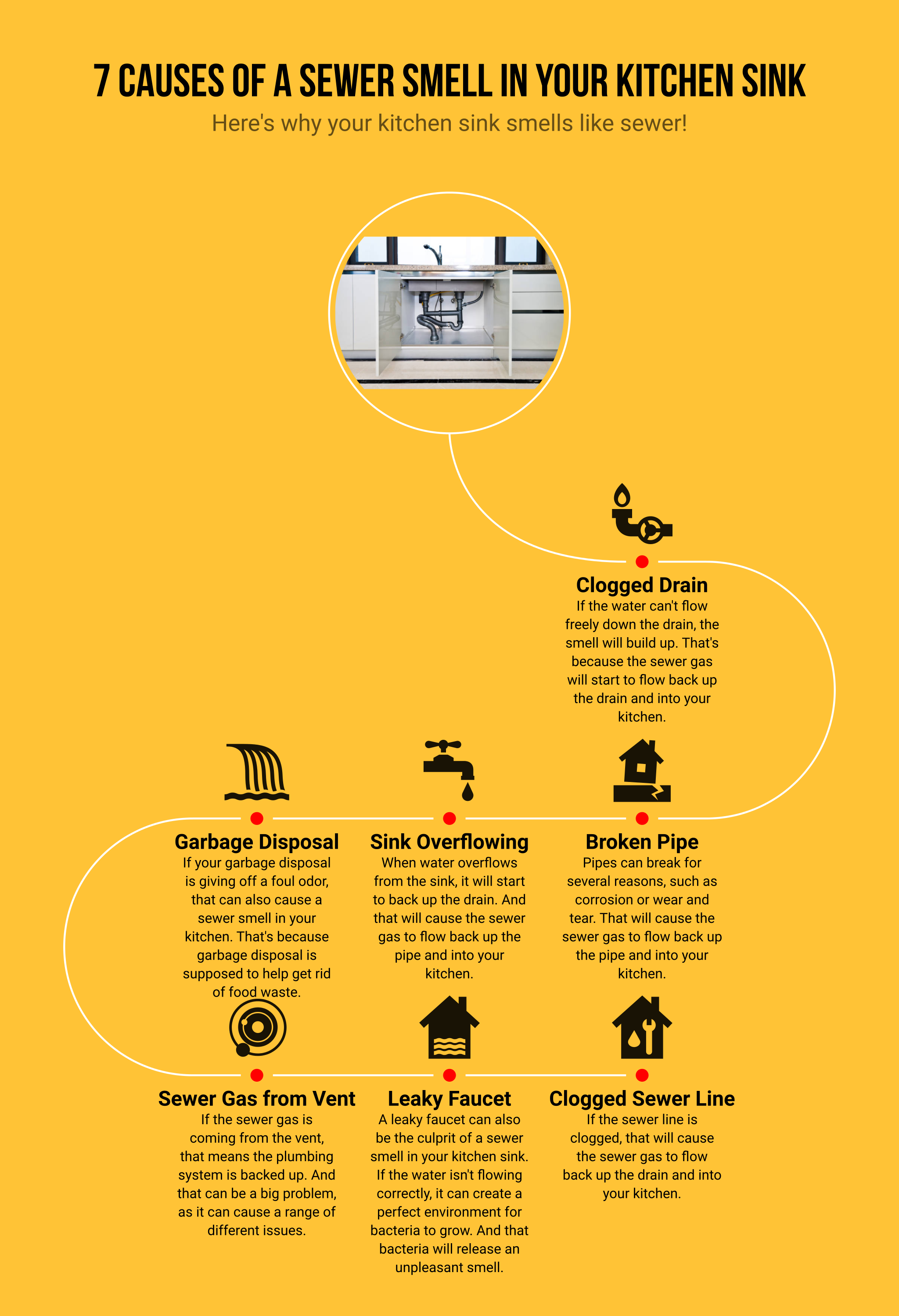
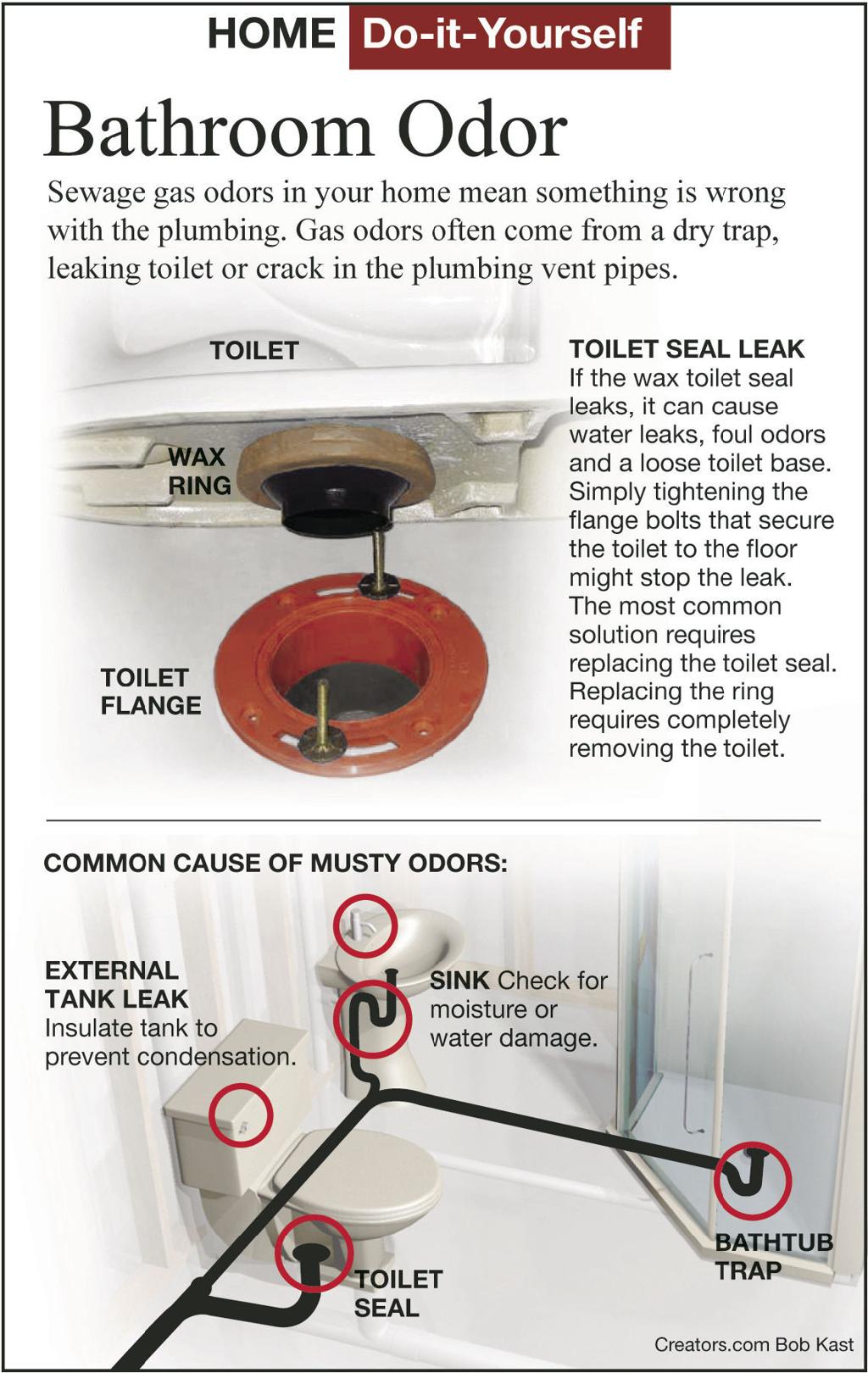

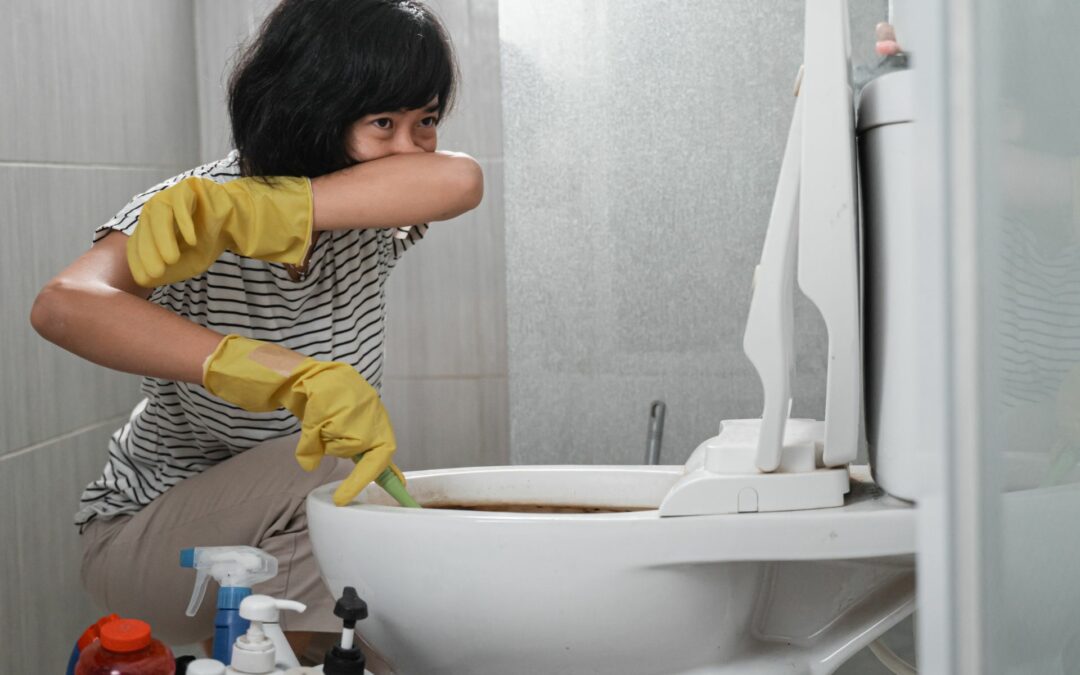



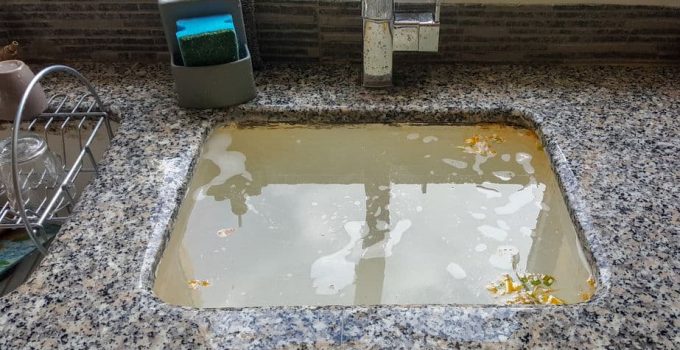





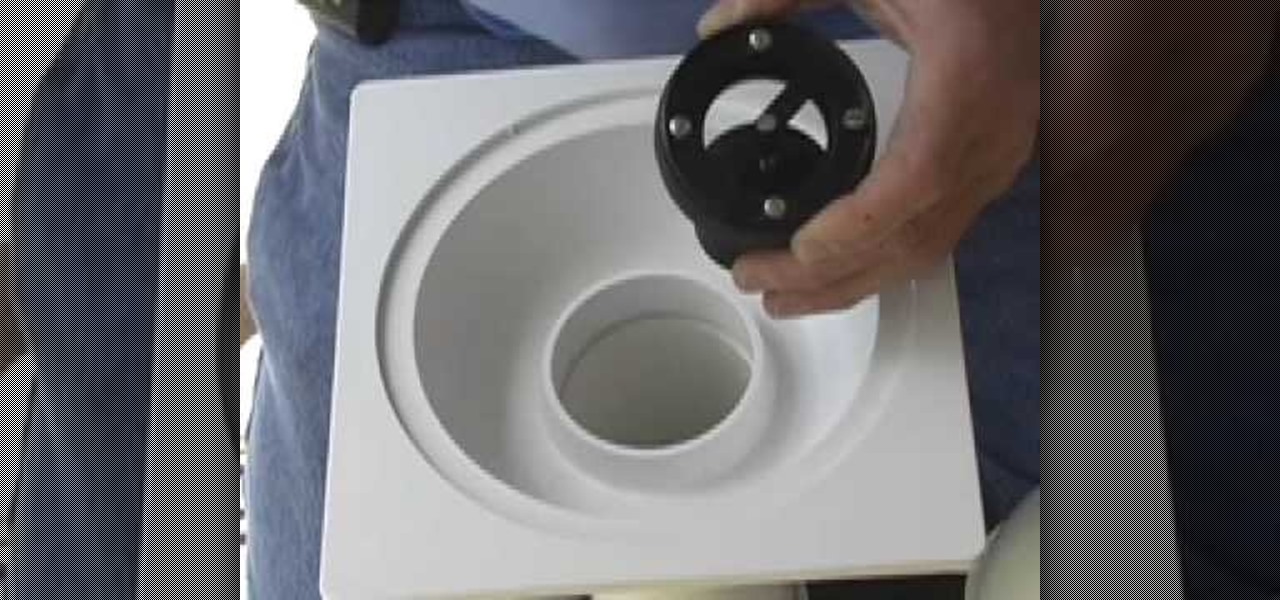






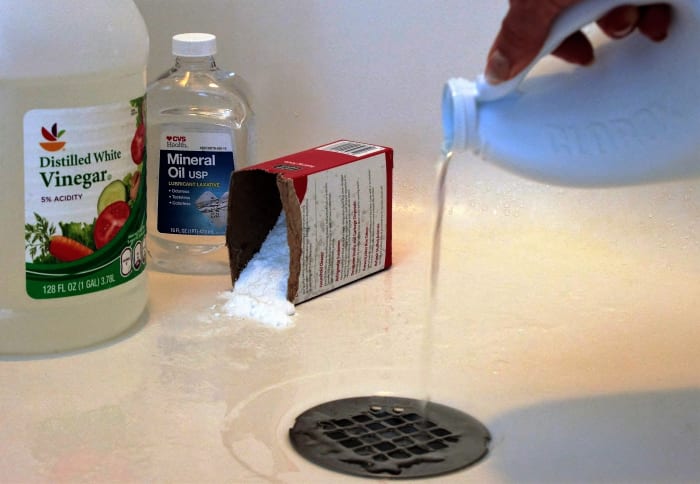
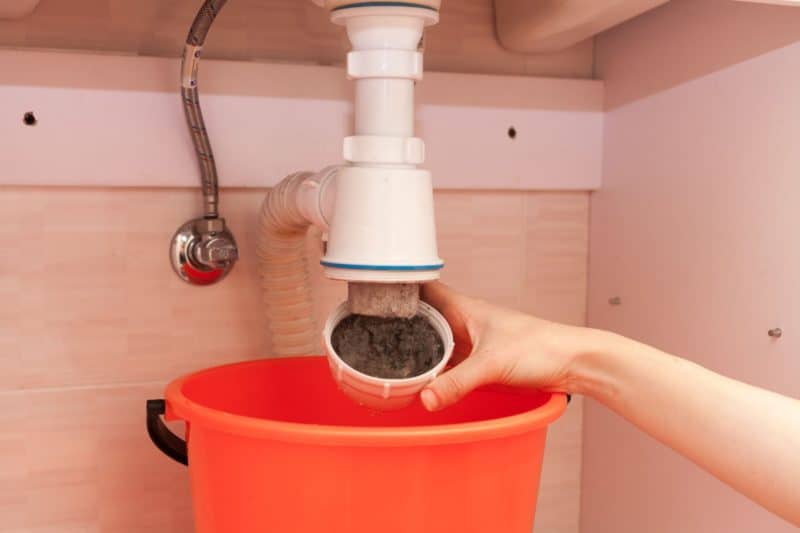





:max_bytes(150000):strip_icc()/sink-pipe-under-wash-basin-119001607-6f28aec4c66944efb7a9a38cb622ab8b.jpg)
